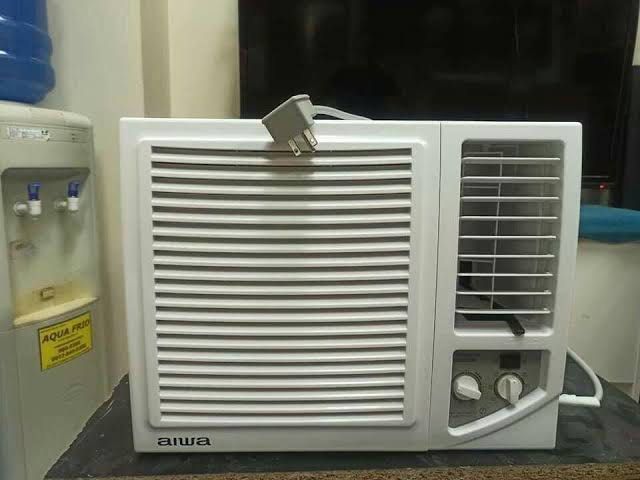When the temperature starts rising, comfort becomes a priority. People often face the dilemma of deciding whether to invest in air conditioning or to rely on fans to keep their homes cool. Both options serve the purpose of providing relief from the heat, but they work in fundamentally different ways and come with their own set of advantages and drawbacks.
In this blog post, we’ll dive deep into the differences between air conditioning and fans, and help you decide which one is the best fit for your home based on your specific needs, preferences, and budget.
How Air Conditioners Work
Air conditioning systems work by removing heat from the air inside your home and releasing it outside. They use a process known as refrigeration to cool down the air. The unit absorbs warm air from the room, passes it over a cold evaporator coil, and blows the cooled air back into the room. At the same time, it expels hot air through a vent outside the home, which results in the cooling effect you experience.
Air conditioners come in various types, from portable units and window units to split systems and central air conditioning systems. Central air conditioning is typically found in larger homes and requires a duct system to distribute the cool air throughout the house, while smaller units like window air conditioners are more suitable for cooling single rooms.
How Fans Work
Fans don’t cool the air—they simply move it around. By circulating the air in the room, fans create a wind-chill effect, which makes the room feel cooler by promoting evaporation from your skin. Essentially, a fan speeds up the evaporation process and helps your body lose heat more effectively. However, for a more effective solution during sweltering conditions, especially in humid climates, many people opt for professional services like Bukit Batok aircon servicing. This ensures your air conditioning system is in top shape to provide consistent cooling, making it a reliable option when fans alone aren’t sufficient.
Unlike air conditioning, fans don’t use refrigerants or consume significant amounts of energy to remove heat. They are much simpler devices and are available in various designs, including ceiling fans, floor fans, table fans, and box fans.
Factors to Consider When Choosing Between Air Conditioning and Fans
1. Temperature Control and Comfort
Air conditioning wins in the battle of temperature control. It has the ability to cool the air to your desired temperature, regardless of how hot it is outside. This makes air conditioning ideal for regions with extreme heat or for people who prefer a consistent, cool environment.
Fans, in contrast, only circulate the existing air and create a wind-chill effect. This can be effective when the outside temperature is warm but not overly hot. For example, on a warm spring day, a fan might be all you need to stay comfortable. However, when temperatures soar above 90°F (32°C), fans might struggle to provide relief, and air conditioning would be much more effective in ensuring comfort.
2. Energy Efficiency
When it comes to energy efficiency, fans are generally the winner. Fans consume much less energy than air conditioners because they don’t need to cool the air; they simply move it around. As a result, the electricity costs of using a fan are significantly lower compared to running an air conditioning system, particularly in the long run.
Air conditioning systems, especially central ACs, are energy-intensive. They not only cool the air but also need to maintain a low indoor temperature consistently, which requires substantial energy input. However, newer and more efficient air conditioners, especially those with energy-saving features like programmable thermostats and smart sensors, can help reduce energy consumption. Still, the overall cost of running an AC is typically much higher than using fans.
3. Environmental Impact
In terms of environmental impact, fans are clearly the better choice. Fans don’t use refrigerants or other chemicals that can contribute to global warming or ozone depletion. Since fans consume much less electricity, they also have a lower carbon footprint.
Air conditioners, on the other hand, often rely on refrigerants that have been linked to environmental damage. The production and use of air conditioning units also contribute to higher greenhouse gas emissions, particularly when the energy source is fossil fuels. However, if you live in an area where the power grid relies on renewable energy, the impact of air conditioning could be reduced.
4. Health and Air Quality
Air conditioners not only cool the air but also filter it. Many modern AC systems come with advanced filtration systems that can remove dust, allergens, and other particles from the air. This is particularly beneficial for people with asthma, allergies, or respiratory issues. Additionally, air conditioning helps reduce humidity levels in the home, preventing the growth of mold and mildew, which can have a negative impact on health.
Fans, while they don’t remove pollutants or allergens from the air, can still be beneficial in keeping the air circulating and preventing stagnation. However, in high-humidity environments, fans might not be as effective at reducing moisture in the air, which could lead to discomfort and potential mold growth over time.

5. Noise Levels
Another factor to consider is noise. Air conditioners, especially central AC units, can be quite noisy when running, although modern systems have made significant strides in noise reduction. The noise level can vary depending on the type of air conditioning system, the model, and its efficiency. Window air conditioners, for example, are often noisier than split or ducted systems.
Fans, on the other hand, are typically quieter and less intrusive. Ceiling fans and small box fans are usually not disruptive, and many people find the sound of a fan’s hum to be soothing. That said, the noise level can still vary, especially with larger or more powerful fans.
6. Installation and Maintenance
Air conditioning systems—particularly central units—require professional installation and can be expensive upfront. Ongoing maintenance is also necessary to keep the system running efficiently, including cleaning filters, checking refrigerant levels, and inspecting ducts. For central AC systems, regular servicing can be essential for maintaining peak performance.
Fans, by contrast, are much simpler and require little to no installation. They are typically plug-and-play, which makes them far easier to set up and move around. Maintenance is generally limited to cleaning the blades and checking for motor issues, making them a lower-maintenance option compared to air conditioning.
7. Cost
The initial cost of purchasing and installing an air conditioner is significantly higher than buying a fan. Central air conditioning systems can cost thousands of dollars, not including installation fees, while even portable or window units typically cost hundreds of dollars.
Fans, on the other hand, are far more affordable. A basic fan might cost as little as $20, and even more sophisticated models (such as tower fans or high-performance ceiling fans) typically cost less than $200. Fans are therefore the budget-friendly option when compared to air conditioning.
Conclusion: Which is Better for Your Home?
The decision between air conditioning and fans ultimately comes down to your specific needs, lifestyle, and budget.
- Air conditioning is the best choice if you live in an area with extreme heat, need consistent temperature control, or have health concerns that benefit from air filtration and humidity control. While more expensive to install and operate, it provides a level of comfort that fans can’t match in sweltering conditions.
- Fans are ideal for milder climates, where temperatures rarely exceed 90°F (32°C), or for those who want a more energy-efficient, affordable solution. Fans are perfect for circulating cool air in the evening or in areas where the heat is not too overwhelming.
In the end, many people find that having both options—air conditioning for the hottest days and fans for mild heat—gives them the best of both worlds.










